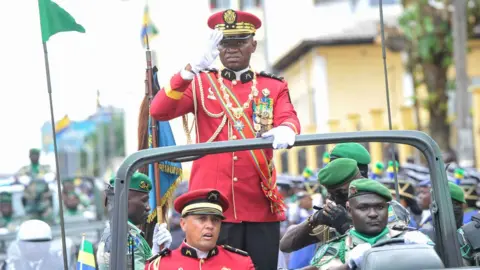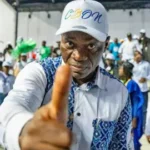As Gabon approaches its critical election season, one figure stands at the center of political chatter: General Brice Clotaire Oligui Nguema. After seizing power in a military coup in August 2023 that toppled President Ali Bongo Ondimba, who had led the country for over 14 years, Nguema’s ambitions have shifted towards legitimate political recognition. The recent transitional government has indicated a looming election, creating a mix of anticipation and skepticism among Gabonese citizens and observers around the world.
The Coup: A Precursor to Electoral Aspirations
On August 30, 2023, just days after the controversial presidential elections, troops under Nguema’s command deposed Bongo, citing electoral fraud and widespread dissatisfaction from the populace. This watershed moment exemplified long-standing grievances regarding governance, social inequality, and economic stagnation. The military takeover was lauded by some as a restoration of hope for change in a country that had long been under Bongo’s ruling dynasty.
Following the coup, Nguema quickly established a transitional government, promising a return to constitutional order and scheduling elections within a year. This move signaled his intention to shift from a military ruler to a democratically recognized leader—a critical transition to garner support from both domestic and international audiences.
Gen. Brice: The Man Behind the Uniform
General Brice Clotaire Oligui Nguema is not new to the Gabonese political landscape. Before his elevation to power, Nguema served as the head of the Republican Guard, a prestigious security division tasked with protecting President Bongo. His military background provides him with the leverage to navigate the complex political terrain of Gabon, relying on both tactics and military might to establish control.
While some view him as a strongman, Nguema’s approach has so far been laced with populism and a keen understanding of public discontent. He has made promises of economic reforms and transparency, pledging to tackle endemic corruption—a theme that resonates with many Gabonese citizens suffering from high unemployment and stalled development. His rhetoric emphasizes a vision of a new Gabon, appealing to a youth population eager for change.
Anticipation and Apprehension: The Upcoming Elections
As the transitional government gears up for elections, clarity around the electoral framework remains a cornerstone for both political stability and international legitimacy. Nguema aims to establish a framework where he can compete not just as a military leader but as a presidential candidate. He must navigate the delicate balance of enforcing order while also accommodating democratic discourse.
Election observers expect the upcoming polls to be a litmus test for Gabon’s political future. Will Gen. Brice lean into democratic principles, or will he resort to authoritarian tactics reminiscent of Bongo’s regime? Already, concerns have emerged over the treatment of political opponents and the silencing of dissent, which could undermine Nguema’s credibility both internationally and among the Gabonese populace.
As the electoral landscape evolves, civil society organizations are mobilizing to ensure fairness and transparency throughout the electoral process. Activism, often stifled under previous regimes, has seen a resurgence as citizens demand accountability from their leaders.
The Road Ahead
As all eyes turn to Gabon, Gen. Brice Nguema’s ambitions are clear: he seeks not only to consolidate power but to emerge as the legitimate leader through electoral victory. Whether he can transition from military ruler to a democratically elected president will define not only his legacy but also the future of Gabon as it grapples with its democratic aspirations.
In a region often beset by authoritarianism, the stakes in Gabon’s upcoming elections are high. The world watches with bated breath as Nguema commits to a new era, where the balance between power and democracy will be tested. How he navigates this pivotal moment in Gabon will be a defining chapter in the nation’s political journey.
Email Us on editorial@nnafrica.com













